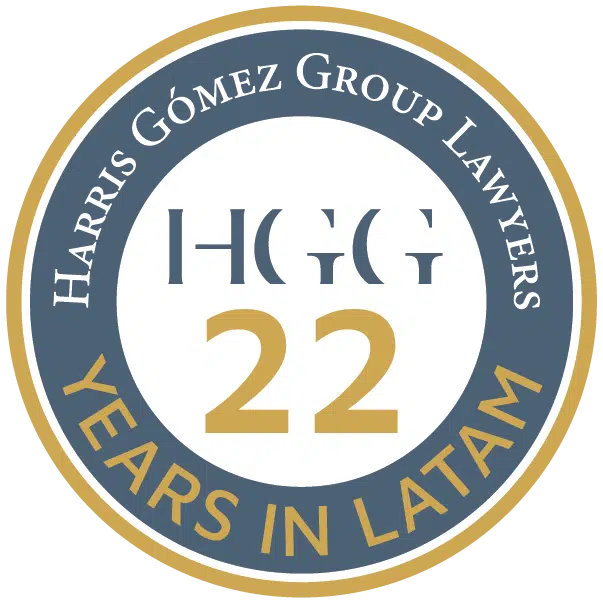In order to take full advantage of the growing opportunities in Mexico, we recommend taking a long-term view of the region. Similar to other Latin American countries, Mexican businesses prefer partners who have a local presence. This ensures your clients that your business will be able to provide the after sales support and assistance needed once a sale is complete.
Setting up a business in Mexico does not need to be an expensive task. Choosing the right partner is the key to ensuring your set up is both stress-free and cost effective. The right partner will help you navigate the legal system, the tax system and provide advice on choosing the right corporate structure. Choosing the right structure is important because it has legal and tax implications for the future of your business. Implementing the correct business structure now will save your company time and money down the road.
The General Corporation Law in Mexico recognises the existence of six types of commercial organisations or structures. However, in daily corporate practice in Mexico, the types of companies most utilised are:
- limited liability stock corporation or “sociedad anónima”; and
- The limited liability company or “sociedad de responsabilidad limitada”.
These types of companies may be organized with variable capital, which allows the business to alter its capital (the variable portion) with a minimum of formalities.
Sociedad Anónima (S.A)
The sociedad anónima is the most used and accepted business structure in Mexico. It operates under a company name and ownership is in the form of shares in the capital of the company. Shareholders’ liability is limited to making capital contributions to the company for the purchase of shares.
The creation of a sociedad anónima requires a minimum of two stockholders and there is no minimum share capital. However, upon incorporation, shareholders must set a minimum capital stock that must be fully subscribed within one year of the establishment of the company. The management of the corporation is entrusted to two or more directors or to a sole administrator, who need not be a shareholder.
Practical Points:
- In June 2014 reforms were made to Mexico’s General Law of Commercial Companies that increased the flexibility of the S.A’s by-laws. For example, the by-laws now expressly allow rules regarding the settlements of disputes among the shareholders (“deadlock”) or the establishment of mechanisms for joint sale of shares (“tag along” and “drag along”). Due to these reforms, the S.A has become the favourite corporate structure in Meixco. In particular, the S.A is especially favoured by companies in which two or more groups are involved or where the protection of minority rights isn’t a concern.
- An S.A will normally distribute shares of equal value and rights. However, certain privileges or restrictions on shares can be created within the company’s deed of incorporation. For Example, certain shares may not confer a voting right, or may limit the voting right; etc.
- An S.A has more corporate government requirements than some of the other corporate vehicles. For Example, ordinary general meetings must be held at least once a year, and must be within four months following the termination of the business year. These ordinary general meetings are used to approve the financial statements and to appoint or, as the case may be, ratify the appointment of the directors and auditor(s).
Sociedad de Responsabilidad Limitada (S. de R. L.)
Members of a limited liability company have a liability that is limited to their capital contribution to the company. However, their ownership interests cannot be represented by negotiable certificates, either in ‘registered’ or ‘bearer’ form. Such contributions are transferable only in the specific cases provided by the General Corporation Law. After the limited liability stock corporation, the S. de R.L is the most commonly used business structure in Mexico, and is similar to a limited partnership in Australia.
A limited liability company may not have more than 50 members. There is no mandatory minimum capital stock required by law. Capital stock is represented by ‘equity participations’ that may be unequal as regards value and category, and must always represent $1.00 peso or a multiple of this amount. They cannot be formed nor may their capital be increased through public subscription.
Practical Points:
- Each partner has the right to participate in decisions taken at general meetings, with one vote for each $1.00 peso of his capital contribution.
- The S. de R. L has less regulation than the S.A. The S. de R. L. was created as the ideal prototype for small and medium-sized companies, since it has a simple and flexible legal regime.
- General meetings are held at the company’s principal place of business at least once a year, on a date specified in the articles of association.
- Another important advantage is that in the liquidation or dissolution of an S. de R. L., it is optional to publish the final balance sheet in the Official Gazette (Diario Oficial) of the State (Art. 247). This is mandatory for the S.A. as well as with the Limited Partnership with Shares.
About Harris Gomez Group:
Harris Gómez Group is an Australian-Latin American legal and business advisory firm. In 2001, HGG was the first Australian law firm to have a local office in Latin America. The firm specialises in Common Law and Latin American cross-border issues in areas such as Mining and Energy, Corporate, Mergers and Acquisitions, Tax, Intellectual Property and Business Enterprises. With over 21 years of experience immersed in the respective legal and business cultures of Australia and Latin America, we create a seamless bridge between the two regions and have become an essential partner to many multinational enterprises.
If you need assistance with expanding your operations into Mexico or have an existing business, do not hesitate to contact us at hello@hgomezgroup.com






